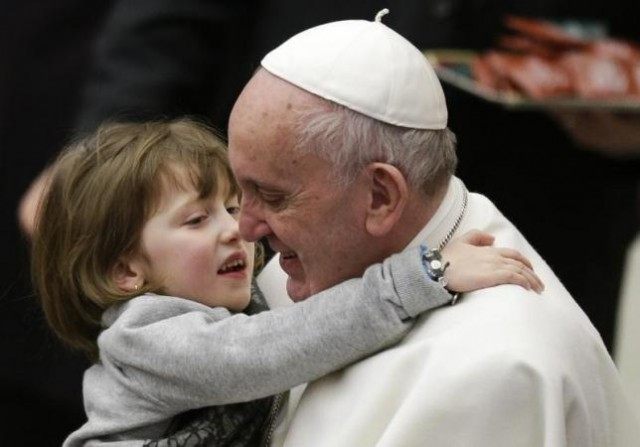Reiterating one of the leitmotivs of his pontificate, Pope Francis told leaders of the World Economic Forum meeting in Davos not to forget the poor in the midst of their deliberations, but to put them front and center.
“To all of you I appeal once more: ‘Do not forget the poor!’” wrote Francis in a message to participants in the meeting.
“This is the primary challenge before you as leaders in the business world. Those who have the means to enjoy a decent life, rather than being concerned with privileges, must seek to help those poorer than themselves to attain dignified living conditions, particularly through the development of their human, cultural, economic and social potential,” he said.
Francis directed the message to the founder and Executive President of the World Economic Forum, Klaus Schwab, in response to an invitation to address the annual gathering.
While offering his “cordial good wishes” for the fruitfulness of this meeting, the Pope took advantage of the opportunity to hammer home a message of social responsibility toward the poor.
The Pope reacted in particular to the dire predictions of the forum’s yearly report regarding the “inevitability of a drastic reduction in the number of jobs” due to rapidly changing technologies and a rise in automation.
“Clearly there is a need to create new models of doing business which, while promoting the development of advanced technologies, are also capable of using them to create dignified work for all, to uphold and consolidate social rights, and to protect the environment,” Francis said.
The Pope urged the business leaders to overcome the temptation to apathy in the face of others’ poverty and pain. He also insisted that all need to acknowledge their own responsibility for the world situation, and see up to what point “our own actions are a cause of injustice and inequality” for others.
“Let us open our eyes, then, and see the misery of the world, the wounds of our brothers and sisters who are denied their dignity, and let us recognize that we are compelled to heed their cry for help!” Francis wrote.
As he has done on other occasions, Francis insisted that responsibility for our brothers and sisters is an essential part of our common humanity. “Do not be afraid to open your minds and hearts to the poor. In this way, you will give free rein to your economic and technical talents, and discover the happiness of a full life, which consumerism of itself cannot provide,” he said.
The Pope also urged the members of the forum to turn their creativity toward concrete solutions and the creation of a more just society.
The present moment, he said, “offers a precious opportunity to guide and govern the processes now under way, and to build inclusive societies based on respect for human dignity, tolerance, compassion and mercy.”
Despite his reputation as a critic of capitalism, Francis praised the entrepreneurship of the free market system, insisting that “business is a noble vocation, directed to producing wealth and improving our world,” especially by creating jobs and serving the common good.
In his address to the U.S. Congress last September, Francis confounded pundits by insisting on the importance of the free market to lift people out of poverty.
In the fight against poverty, Francis said, it “goes without saying that part of this great effort is the creation and distribution of wealth. The right use of natural resources, the proper application of technology and the harnessing of the spirit of enterprise are essential elements of an economy which seeks to be modern, inclusive and sustainable.”
“Business is a noble vocation,” the Pope said then as well, “directed to producing wealth and improving the world.”
Follow Thomas D. Williams on Twitter @tdwilliamsrome

COMMENTS
Please let us know if you're having issues with commenting.